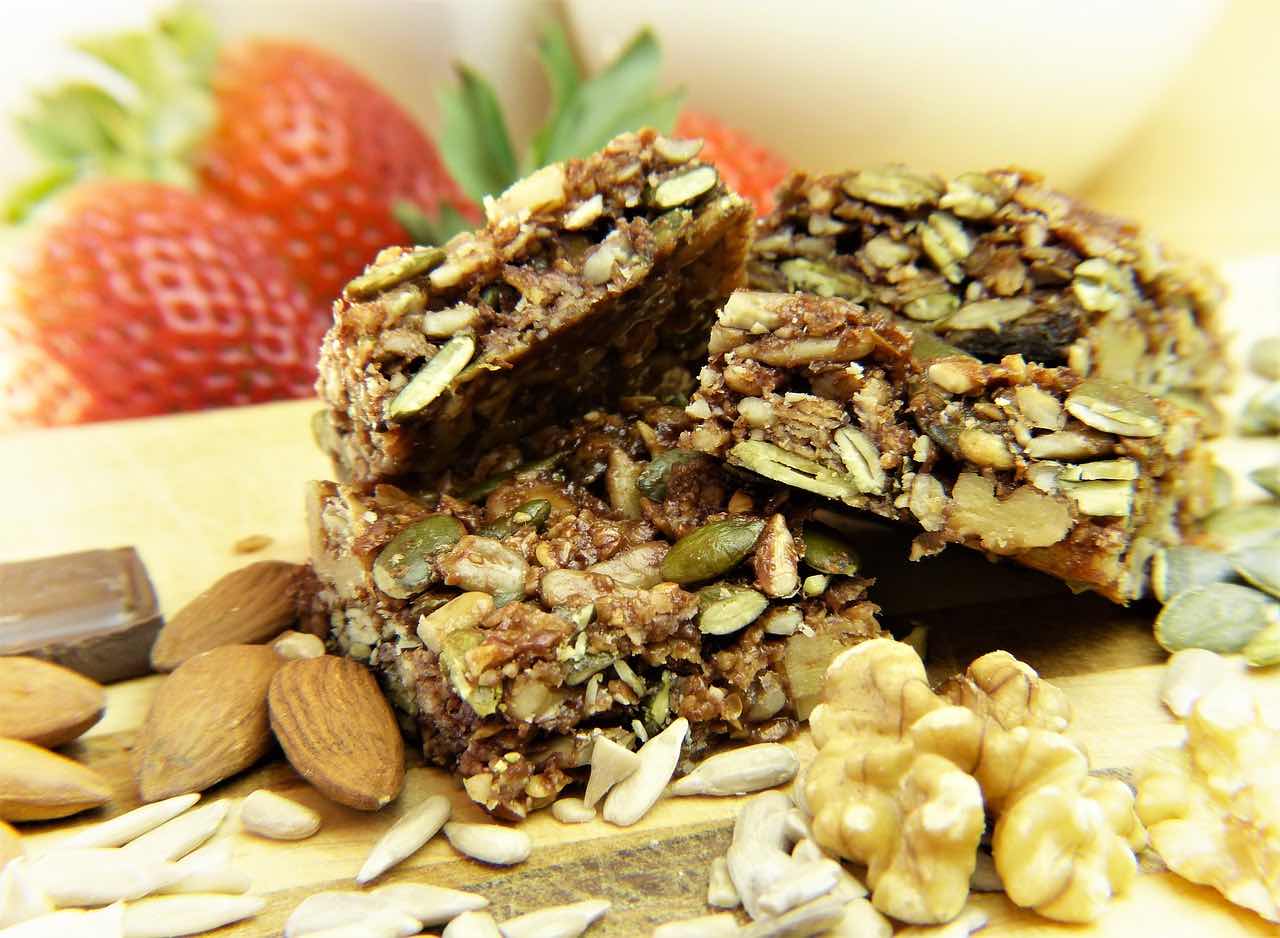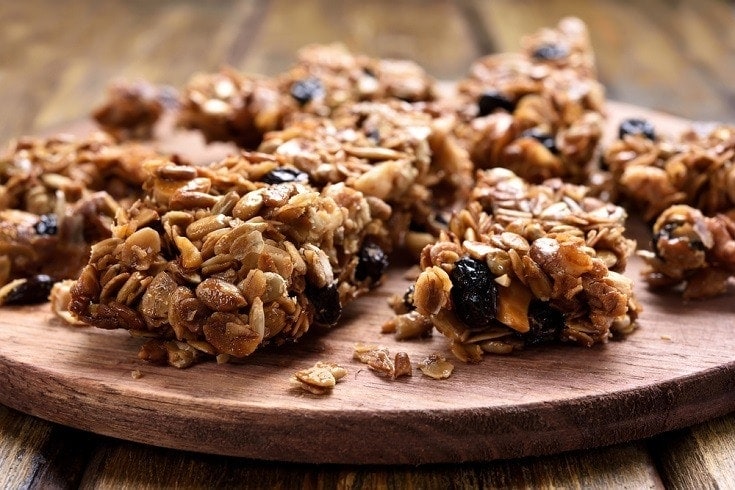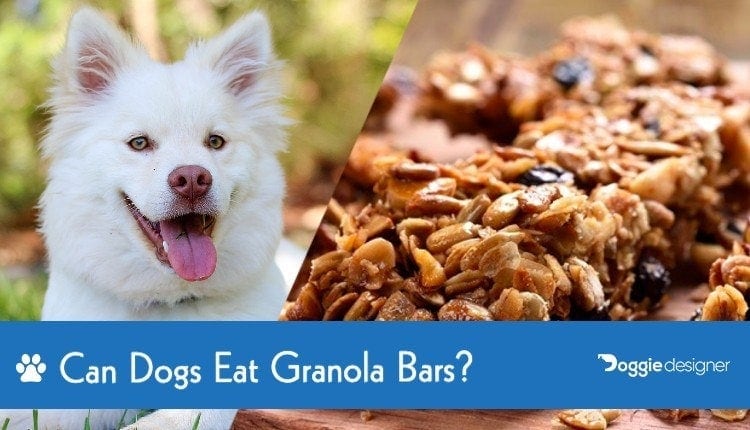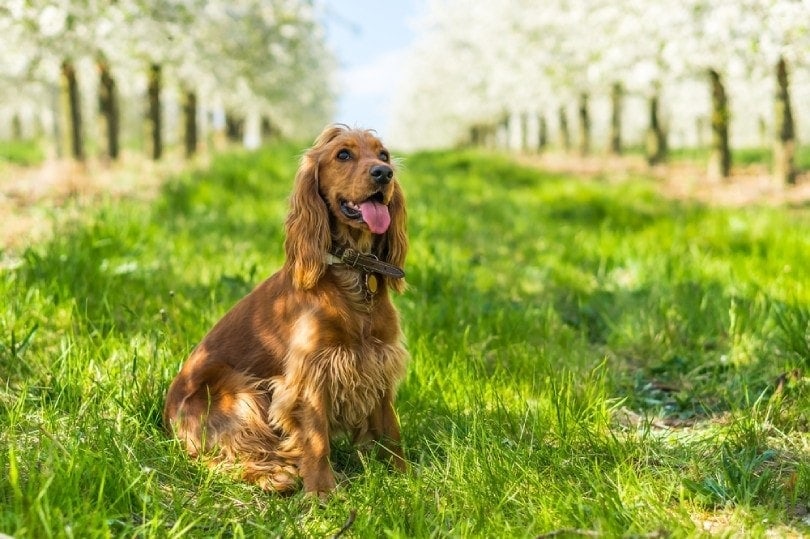With a list of healthy ingredients like oats, whole grains, dried fruits, nuts, honey, and coconut, granola bars sound like the ultimate healthy snack, both for you and your pooch. But can dogs eat granola bars? Are they safe for your canine companion?
Dogs can eat granola bars but they probably shouldn’t. The reason is not as simple as you’d think either, because granola bars have many different ingredients that differ greatly with every manufacturer. While most of the ingredients are good for us and may seem great for your pooch, certain ingredients in these bars should not be given to your dog, at least not on a regular basis. In this article, we’ll explore the ingredients that most commercial granola bars contain and whether your dog should be eating them.
What’s in a granola bar?
Dog lovers know how much dogs love to gnaw and chew, especially during their early growth stages. This makes it seem like a chewy granola bar full of “healthy” ingredients is a great snack for your beloved pooch. But, if you look a bit closer at the ingredients inside most granola bars, you may quickly change your mind. Most commercial granola bars contain the following ingredients in some form: whole grains, oats, puffed rice, nuts, dried fruits, seeds, and of course, sugar, flavorings, preservatives, and artificial sweeteners, in some cases.

Potential health benefits
While granola bar ingredients can differ widely, there are few commonly found ingredients that are potentially beneficial for your pooch. These include:
- Cooked oatmeal has potential benefits for dogs and served in moderation, can be a healthy addition to their diet. Dogs can benefit from a small amount of carbohydrates, and oats are an especially good choice for dogs with grain sensitivities. Oats contains vitamin B, which helps maintain a healthy skin and coat, and a type of omega-6 fatty acid called linoleic acid.
- Puffed rice. Puffed rice contains few vitamins and no protein, but it is a great gluten-free option for dogs with digestive issues. Rice is a good source of insoluble fiber, which can help prevent constipation. Brown rice in particular also contains vitamins D and B, which are essential to cardiovascular health.
- Granola bars can contain many different seeds, some of which are a great addition to your pooch’s daily diet. These may include flax seeds, which are packed with omega fatty acids, protein, and fiber. Some may also contain pumpkin seeds, which are packed with nutritional benefits like iron, calcium, and B vitamins but are also a natural de-wormer. Lastly, chia seeds have many benefits too, including being high in fiber and omega fatty acids.
Of course, all these ingredients can easily be separately given to your dog without the potential concerns of the other ingredients in granola bars. Let’s take a look at what those are.

Potential health concerns
Like most commercial human foods, granola bars contain hidden ingredients that can be potentially harmful to your pooch if consumed in large quantities. These include:
- Dogs are omnivores and can tolerate a wide variety of foods, including grains. However, there is evidence that grains can cause digestive issues in some dogs, especially in excess. Grains like corn, wheat, and soy may not necessarily be bad for your dogs on occasion, but there are better options to give them. Nutrient-dense calories that come from animal-based sources offer more nutrition without the potential digestive issues.
- While some dogs can tolerate fruit fairly well, the fact is that they simply do not need it in their diet. Some fruits like blueberries have potential benefits, but cherries and grapes, in particular, should be strictly avoided, as they can cause serious problems in canines.
- Some nuts, such as peanuts and almonds, may be fine to give your dog on occasion. But other nuts commonly found in granola bars, like cashews, pecans, and walnuts, can cause vomiting, diarrhea, and even seizures in excess.
- Refined sugar is not good for you in excess and is definitely not good for your dog, as it can cause stomach issues, obesity, teeth cavities, and diabetes. While some granola bars are “sugar-free,” they can still contain artificial sweeteners, like xylitol, which is extremely toxic to dogs.

Conclusion
While you will probably not need to rush to the vet should your dog eat a few bites of your granola bar, it is not a snack that should be given to your pooch regularly, if at all. There may be a few ingredients that have some benefit, but these can easily be substituted into your dog’s diet separately. Plus, granola bars have widely differing ingredients, and many of these can be potentially harmful to your beloved pooch.
Featured Image Credit: Tatiana Volgutova, Shutterstock







